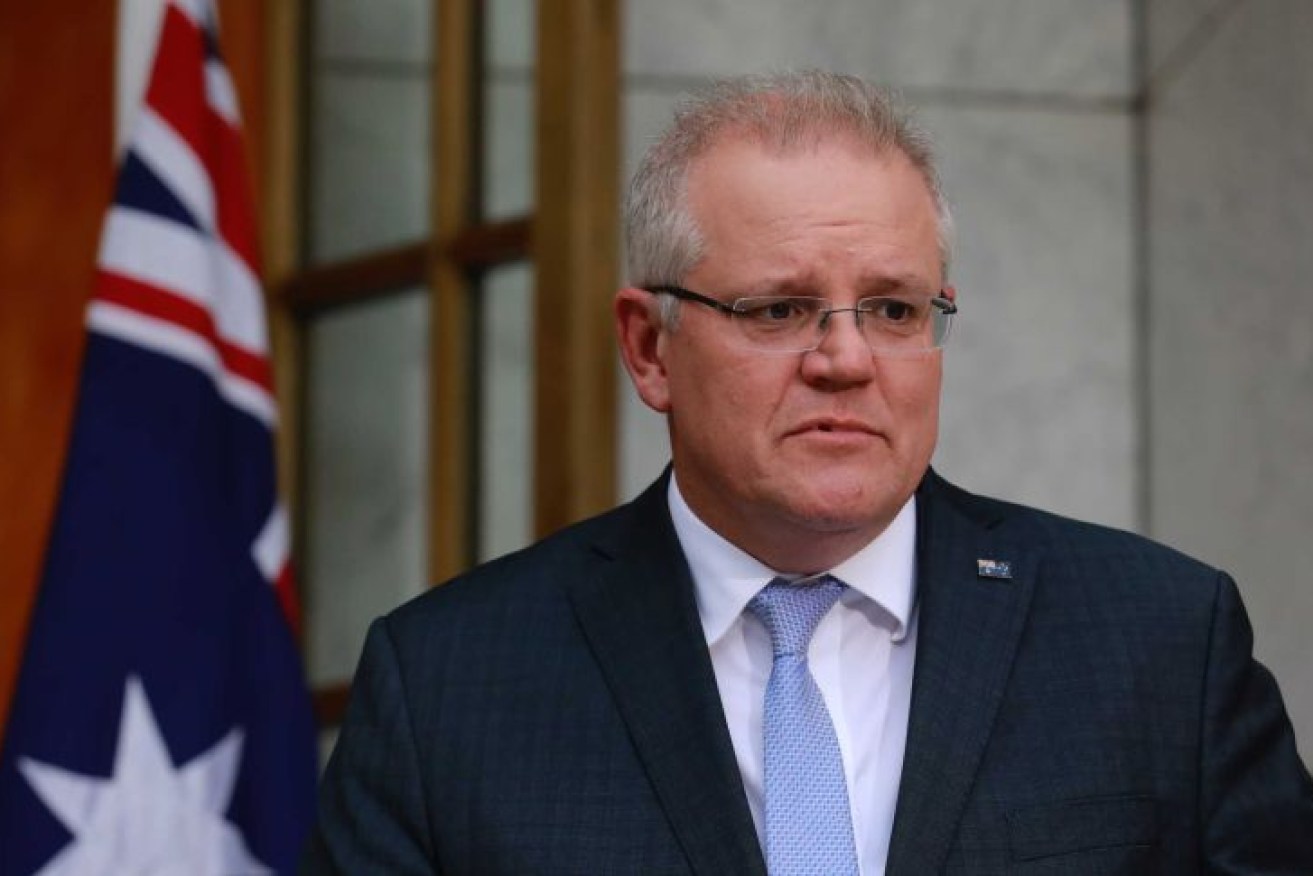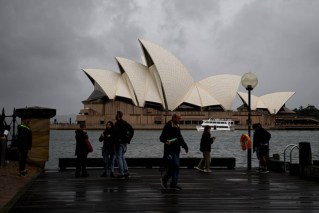Biden win leaves Australia ‘isolated’ and lagging on climate goals


Scott Morrison said the ABC needs to stick to its charter Photo: ABC News/Adam Kennedy
A Biden presidency will put an increasingly “isolated” Australian government under immense pressure to adopt strong environment and emissions policies, leading climate voices say, as the United States looks to again assume a global leadership role.
It comes as former prime minister Malcolm Turnbull ridicules Scott Morrison’s plans for a ‘gas-led recovery’ as “BS” and “political piffle”, in calling for his former colleagues to back more ambitious climate targets.

Mr Biden has ambitious energy policies. Photo: AAP
Joe Biden has claimed the prize in the American presidential election, giving a soaring victory speech from Delaware in which he placed action on the environment front and centre.
President-elect Biden spoke of “the battle to save our planet by getting the climate under control”, while vice president-elect Kamala Harris also prominently mentioned the need “to combat the climate crisis” in her speech.
Ambitious climate agenda
Mr Biden will reinsert the US into the Paris climate agreement on his first day in office.
He pledged “to get every major country to ramp up the ambition of their domestic climate targets”, and will move to get the US power grid using 100 per cent clean energy by 2035.
Crucially, he will commit the US to a policy of net-zero emissions by 2050.
This change, Australian experts say, will leave Mr Morrison’s federal government out in the cold as the only one of our major trading partners without a similar target.
“This will have huge ramifications in increasing action around the world,” Amanda McKenzie, CEO of the Climate Council, told The New Daily.
“Australia will look isolated. Most countries have a net-zero target, many are looking more ambitious than that. Australia’s ‘climate-lite’ approach, of not doing a lot but claiming we are, won’t cut it.”

Australia will be left “isolated” without stronger climate goals. Photo: AAP
All of Australia’s most important partners – the United Kingdom, Japan, South Korea, China, India, Canada, and now the US – have committed to concrete net-zero targets in coming years, meaning a balance between emissions produced and emissions removed.
Last month, British PM Boris Johnson told Mr Morrison of the need for “bold action to address climate change” and “the importance of setting ambitious targets to cut emissions and reach net zero”.
However, Mr Morrison has only committed Australia to the goal “in the second half of this century”.
The federal government has also come under fire for the controversial plan to use ‘carryover credits’ from the previous Kyoto climate agreement to count against commitments under the Paris agreement.
On Sunday, Mr Morrison said he looked forward to working with Mr Biden to lower emissions worldwide.
“We want to see global emissions fall and it’s not enough for us to meet our commitments,” he said.
“We need to have the transformational technologies that are scalable and affordable for the developing world as well”.
Pushing beyond net zero
Richie Merzian, climate and energy program director at The Australia Institute, said a Biden win will further pressure the federal government.
“We could always hide behind the US when they were a laggard on climate, but no more. Biden will bring that pressure to bear on Morrison,” Mr Merzian told TND.

Australian climate groups want to see bolder policy. Photo: AAP
“It will be impossible for him not to take on a long-term climate target. It will become poison on the international level.”
He said other nations were using net zero as a “base model”, and making more ambitious commitments on top, like clean energy targets through the 2030s decade.
He added that Australia should scrap its reliance on Kyoto credits and pledge stronger action.
“The most important period for climate action is the next 10 years … [a Biden win] does raise this and put this back as a front and centre issue,” Mr Merzian said.
Australia Institute polling from last year found 62 per cent of Australians would back a net-zero target by 2050, or even earlier.
Mr Merzian said Mr Biden’s policies would encourage businesses to pour cash into renewables, which would further encourage politicians to push for stronger action – not only on an environmental basis, but also to chase cheaper power costs.

Australia should adopt cleaner energy targets, experts say. Photo: AAP
“An increasingly squeezed federal government will have to produce a far more ambitious climate plan,” he said.
Ms McKenzie said it was a “no brainer” for Australia to at least adopt a net-zero target by 2050, but preferably earlier – 2040 or even 2035.
She expected other nations to bring more ambitious targets to the 2021 United Nations climate conference in Glasgow, or Mr Biden’s planned climate summit.
“The latest climate science is showing impacts more quickly than has been projected before,” she said.
“We should be shifting our stance. If anyone can do it, it’s us, as we’re the sunniest and one of the windiest countries on Earth.”
‘Piffle’
Mr Biden’s victory was praised by Australian political leaders past and present on Sunday, including former PMs Malcolm Turnbull and Kevin Rudd.
Most salaciously, Mr Turnbull slammed his successor’s environmental and emissions policies. Mr Morrison became PM in August 2018, after Mr Turnbull was spilled in a party room showdown sparked by energy policy.
Mr Turnbull, speaking on the ABC’s Insiders, derided Mr Morrison’s plans for a ‘gas-led recovery’ as “political piffle”.
WATCH: @TurnbullMalcolm on whether the US presidential election means Scott Morrison should now commit to net zero carbon emissions by 2050 or even a more ambitious short-term target. #insiders #auspol pic.twitter.com/lZc9WQ7UbM
— Insiders ABC (@InsidersABC) November 7, 2020
“The global landscape has changed. The people that have been holding us back, holding the Coalition and the country back on this issue, are out of the way’,” he said.
“This is the time to pivot. Otherwise, he’s going to look out on the extreme with Saudi Arabia, as some kind of a carbon economy.
“Really, we can do so much better than that, and now is the time for Scott to move.”








